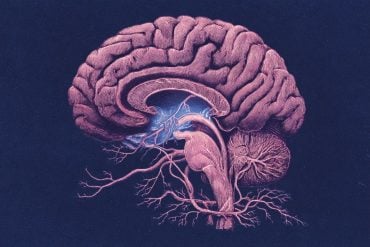Summary: Simple social interactions, like chatting with a friend, can mitigate the effects of social exclusion. The research found that both face-to-face conversations and anticipating future interactions help individuals recover quicker from social slights and feel more secure.
The study, which involved 664 participants experiencing virtual exclusion, underscores the power of everyday social connections in enhancing emotional resilience. These findings emphasize the potential of structured social interventions in various institutional settings to foster inclusivity and combat loneliness.
Key Facts:
- Conversations with friends before or after exclusionary incidents help diminish their negative impact.
- Anticipating future social interactions can also accelerate recovery from social slights.
- The study highlights the effectiveness of social interventions in reducing vulnerability to exclusion, with broader implications for settings like schools and workplaces.
Source: Cornell University
Small, simple forms of social connection – such as a conversation with a friend or even just looking forward to one – can lessen the negative feelings and thoughts that come with being socially excluded, according to a new study by Cornell researchers.
“Maybe someone doesn’t smile at you, or maybe somebody doesn’t include you in an email chain.
“We were interested in how interventions involving friends and strangers before the experience might buffer and help people react less strongly to minor but common forms of social exclusion, and promote recovery afterward so they get back to how they typically feel,” said first author Randy T. Lee, a doctoral candidate in the field of social and personality psychology who focuses on social belonging and exclusion.
“This work really stresses the importance of having close relationships around you, people you can count on, and seemingly minor day-to-day interactions that can have meaningful consequences.”
Talking with a friend face-to-face before or after being excluded in a social situation reduced the effect. And even just a reminder of an upcoming interaction with a friend sped up recovery and made study participants feel more secure, the researchers found.
Lee is corresponding author of “Mitigating the Affective and Cognitive Consequences of Social Exclusion,” published May 7 in BMC Public Health. Lee’s co-authors are Gizem Surenkok, M.A., Ph.D., and Vivian Zayas, professor of psychology in the College of Arts and Sciences.
“The work is showing the benefit of getting outside of our comfort zone. We may sometimes gravitate towards checking our phones or trying to get a bit more work done, but having conversations with our good friends, with peers, classmates or colleagues is not hugely risky, but the benefits can be impactful.” Zayas said.
The researchers led 664 study participants to feel disconnection by playing a virtual ball-tossing game where they were either included or left out, which led to them to experience a lower mood and self-esteem. But some participants experienced a social disconnection intervention.
The interventions varied whether a friend was present (versus an unknown peer or being alone), the nature of interpersonal engagement (having a face-to-face conversation versus a reminder of an upcoming interaction or simply having someone nearby), and the timing of the intervention in relation to the game (before versus during and after).
After playing the game, participants rated their mood, feelings of belonging, sense of control and social comfort.
“We experience these momentary vulnerabilities, these momentary incidents of disconnection where you’re thinking, ‘Did that person just slight me?’” said Lee, a graduate resident fellow at Carl Becker House.
“But then very quickly, we can recover through these small interactions with a friend. We also find that these small interactions with a friend before that momentary slight can buffer against the negative consequences.”
There was less conclusive evidence that a face-to-face conversation with an unknown peer, or the mere presence of a friend or an unknown peer, buffered or promoted recovery from the sting of social exclusion.
The findings could have implications for organizations from schools to colleges, and medical and occupational institutions.
“Implementing frequent, positive and structured interactions in these settings may effectively promote social connection and reduce individuals’ vulnerability to social slights,” the team wrote in the paper.
And that can have implications for staving off a downward spiral of negative thinking and withdrawal, with potential impacts on loneliness and isolation, Zayas said.
“What we’re trying to do is just take away the edge,” she said. “If our emotions aren’t as negative, we think better, we reason better, we can see things in a different way, our behaviors are more flexible, and we can be more optimistic.”
Funding: The research was funded by the National Science Foundation.
About this social neuroscience research news
Abstract: Abby Shroba Kozlowski
Source: Cornell University
Contact: Abby Shroba Kozlowski – Cornell University
Image: The image is credited to Neuroscience News
Original Research: Open access.
“Mitigating the affective and cognitive consequences of social exclusion: an integrative data analysis of seven social disconnection interventions” by Randy T. Lee et al. BMC Public Health
Abstract
Mitigating the affective and cognitive consequences of social exclusion: an integrative data analysis of seven social disconnection interventions
Background
Being socially excluded has detrimental effects, with prolonged exclusion linked to loneliness and social isolation. Social disconnection interventions that do not require direct support actions (e.g., “how can I help?”) offer promise in mitigating the affective and cognitive consequences of social exclusion.
We examine how various social disconnection interventions involving friends and unknown peers might mitigate social exclusion by buffering (intervening before) and by promoting recovery (intervening after).
Methods
We present an integrative data analysis (IDA) of five studies (N = 664) that systematically exposed participants to exclusion (vs. inclusion) social dynamics. Using a well-validated paradigm, participants had a virtual interaction with two other people. Unbeknownst to participants, the other people’s behavior was programmed to either behave inclusively toward the participant or for one to behave exclusively.
Critically, our social disconnection interventions experimentally manipulated whether a friend was present (vs. an unknown peer vs. being alone), the nature of interpersonal engagement (having a face-to-face conversation vs. a reminder of an upcoming interaction vs. mere presence), and the timing of the intervention in relation to the social dynamic (before vs. during vs. after).
We then assessed participants’ in-the-moment affective and cognitive responses, which included mood, feelings of belonging, sense of control, and social comfort.
Results
Experiencing exclusion (vs. inclusion) led to negative affective and cognitive consequences. However, engaging in a face-to-face conversation with a friend before the exclusion lessened its impact (p < .001). Moreover, a face-to-face conversation with a friend after exclusion, and even a reminder of an upcoming interaction with a friend, sped-up recovery (ps < .001).
There was less conclusive evidence that a face-to-face conversation with an unknown peer, or that the mere presence of a friend or unknown peer, conferred protective benefits.
Conclusions
The findings provide support for the effectiveness of social disconnection interventions that involve actual (i.e., face-to-face) or symbolic (i.e., reminders) interactions with friends.
These interventions target momentary vulnerabilities that arise from social exclusion by addressing negative affect and cognitions before or after they emerge. As such, they offer a promising approach to primary prevention prior to the onset of loneliness and social isolation.






